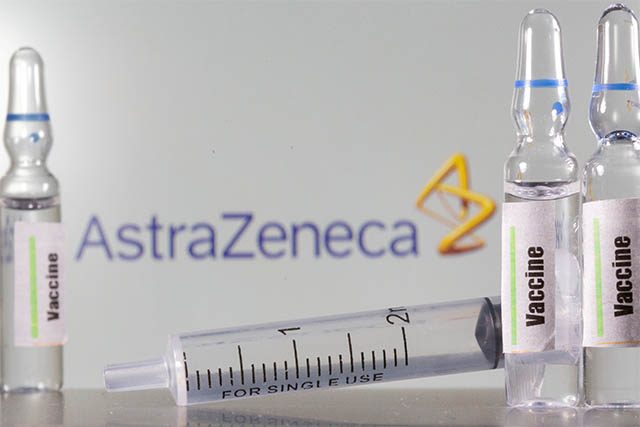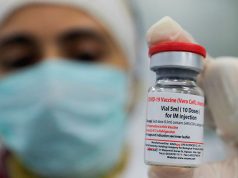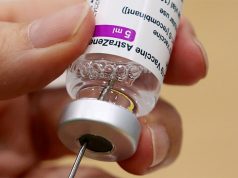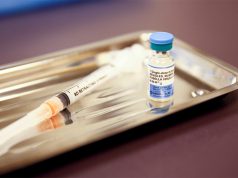
ACCRA — The World Health Organization’s global vaccine-sharing scheme COVAX delivered its first COVID-19 shots on Wednesday, as the race to get doses to the world’s poorest people and tame the pandemic accelerates.
A flight carrying 600,000 doses of the AstraZeneca/Oxford vaccine produced by the Serum Institute of India landed in Ghana‘s capital Accra, the World Health Organization (WHO) and the United Nations children’s agency UNICEF said in a joint statement.
The delivery comes almost a year after the WHO first described the novel coronavirus as a global pandemic and eight months after the launch of the COVAX initiative, aimed at pooling funds from wealthier countries and non-profits to develop a vaccine and distribute it equitably around the world.
The shots, part of an initial tranche of deliveries for several low and middle-income countries, will be used to kick-start a vaccination drive that will prioritise frontline health workers and others at high risk of infection, according to Ghanaian health officials.
“This is a momentous occasion, as the arrival of the COVID-19 vaccines into Ghana is critical in bringing the pandemic to an end,” Anne-Claire Dufay of UNICEF Ghana and WHO country representative Francis Kasolo said in the statement.
“The only way out of this crisis is to ensure that vaccinations are available for all.”
More than 80,700 people in Ghana have been confirmed infected and 580 have died, according to a Reuters tally.
Health minister-designate Kwaku Agyeman Manu led a delegation to receive the vaccines at the airport.
Equitable distribution
The roll-out in Ghana is a milestone for COVAX, which is trying to narrow a politically sensitive gap between the millions of people being vaccinated in wealthier countries and the comparatively few who have received shots in less developed parts of the world.
It plans to deliver nearly 2 billion vaccine doses this year, including 1.8 billion to poorer countries at no cost to their governments, and to cover up to 20% of countries’ populations. But it will not be sufficient for nations to reach herd immunity and effectively contain the spread of the virus.
The African Union (AU) has been trying to help its 55 member states buy more doses in a push to immunize 60% of the continent’s 1.3 billion people over three years. Last week, its vaccine team said 270 million doses of AstraZeneca, Pfizer and Johnson & Johnson vaccines secured for delivery this year had been taken up.
China has donated small batches of its Sinopharm vaccine to countries including Zimbabwe and Equatorial Guinea. And Russia has offered to supply 300 million doses of its Sputnik V vaccine to the AU scheme along with a financing package.
But many countries are largely reliant on COVAX.
On Tuesday, WHO Director-General Tedros Adhanom Ghebreyesus urged wealthy nations to share vaccine doses with COVAX, saying the goal of equitable distribution was “in jeopardy”.
“So far 210 million doses of vaccine have been administered globally but half of those are in just two countries,” Tedros said in Geneva. “More than 200 countries are yet to administer a single dose.”
COVAX is co-led by the WHO, the GAVI vaccines alliance, the Coalition for Epidemic Preparedness Innovations (CEPI) and UNICEF.
It was launched in June 2020 to try to prevent poorer countries being pushed to the back of the queue for COVID-19 vaccines as wealthier nations bought up billions of doses for their populations.
COVAX said this month that it had allocated the first tranche of 330 million doses of vaccines for 145 countries, including several in West Africa.
Africa’s reported COVID-19 death toll surpassed 100,000 last week, a fraction of those on other continents but rising fast as a second wave of infections overwhelms hospitals. —Reporting by Christian Akorlie in Accra and Alessandra Prentice and Bate Felix in Dakar; Additional reporting by Stephanie Nebehay in Geneva and Kate Kelland in London; Writing by Alessandra Prentice and Bate Felix; Editing by Alexandra Zavis, Richard Pullin and Catherine Evans









